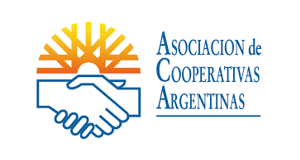Gene editing for improvement in plant and animal species
 Argentina
Argentina
 Chile
Chile
 Colombia
Colombia
 Ecuador
Ecuador
 Paraguay
Paraguay
 Uruguay
Uruguay
 Brazil
Brazil
Executive Summary
Crop and animal breeding is one of the constant challenges faced by the agricultural sector when trying to achieve increases in product yield and quality. The FAO proposes that, in order to meet nutritional demand during the next 32 years, the agricultural sector must produce between 50-70% more food, forage and biofuels than a decade ago. CRISPR-based gene editing (GE) is one of the most promising new biotechnologies for achieving this goal. GE is strongly based on knowledge of crop and animal gene functioning, and can be useful for conventional selection for breeds or varieties with desirable or novel traits in a short period of time. The enormous potential of this technique can be seen through proof of concept in the cultivation of important crops such as corn, cotton, rice, potato, soybean, and in cattle, sheep and pig breeding. The objective of this project is to consolidate regional GE research and innovation capacities for the improvement of species of agricultural interest, as a contribution to the technological sovereignty, value-added production, and the productive, economic and social development of the region.
The technological solution
The technological solutions that the project is developing are:
Results
The gene editing project funded by FONTAGRO has made significant advances in improving crops and animal species through the application of the CRISPR/Cas9 system. In the agricultural sector, a didactic guide with a graphic and pedagogical approach was developed and distributed to facilitate the understanding of this technology, focusing on asexual reproduction crops such as potatoes. Additionally, protoplast regeneration and transfection processes were optimized, accelerating the development of improved varieties with greater genetic precision. These advancements not only contribute to food security and climate change adaptation but also strengthen the training of researchers in Latin America, consolidating scientific cooperation in the region.
Beneficiaries
The potential beneficiaries of the genome editing project in plants and animals in South America are diverse and encompass various sectors and interest groups. Firstly, farmers and ranchers in the region will directly benefit from improved crops and animals offering higher yields, disease resistance, and nutritional quality, leading to increased productivity and profitability of their operations. Additionally, the agri-food industry will benefit from access to higher-quality raw materials with specific characteristics, potentially leading to the creation of new products and markets. Moreover, consumers will benefit from access to more nutritious and safer foods. Furthermore, regional scientific research and the academic community will benefit from strengthening their capacities in genome editing, promoting the advancement of knowledge and innovation in agricultural biotechnology in theses and other productive species of interest. In summary, the project has the potential to positively impact the entire agri-food chain, from producers to end consumers, contributing to the economic, social, and scientific development of the region.
Sustainable Development Goals






Project news
Participating Organizations
Executor
- Fundación ArgenINTA (ARGENINTA) - Argentina
Co-executor
- Instituto Nacional de Tecnología Agropecuaria (INTA) - Argentina
- Instituto Nacional de Investigación Agropecuaria (INIA) - Uruguay
- Instituto de Investigaciones Agropecuarias (INIA) - Chile
- Instituto Paraguayo de Tecnología Agraria (IPTA) - Paraguay
- Corporación Colombiana de Investigación Agropecuaria (AGROSAVIA) - Colombia
- Instituto Nacional de Investigaciones Agropecuarias (INIAP) - Ecuador
Associated
- Empresa Brasileña de Investigación Agropecuaria (EMBRAPA) - Brasil
- UdelaR - Uruguay
- Asociados Don Mario SA (Asociados Don Mario SA ) - Argentina
- Universidad de Buenos Aires (UBA) - Argentina
- Programa Cooperativo para el Desarrollo Tecnológico Agroalimentario y Agroindustrial del Cono Sur (PROCISUR) - Uruguay
- Asociación de Cooperativas Argentinas (ACA) - Argentina
- Consorcio Papa - Chile
Graphics and data
Financing by country (in USD)









































